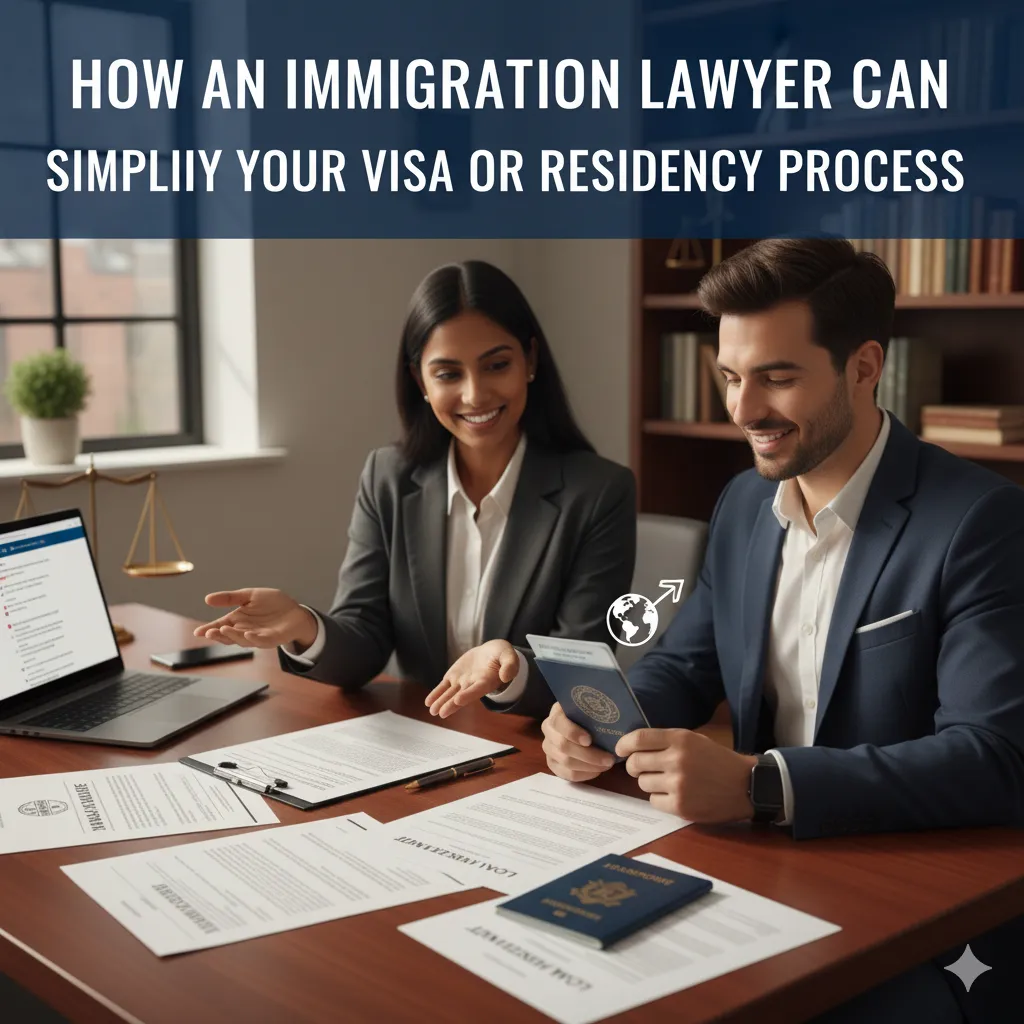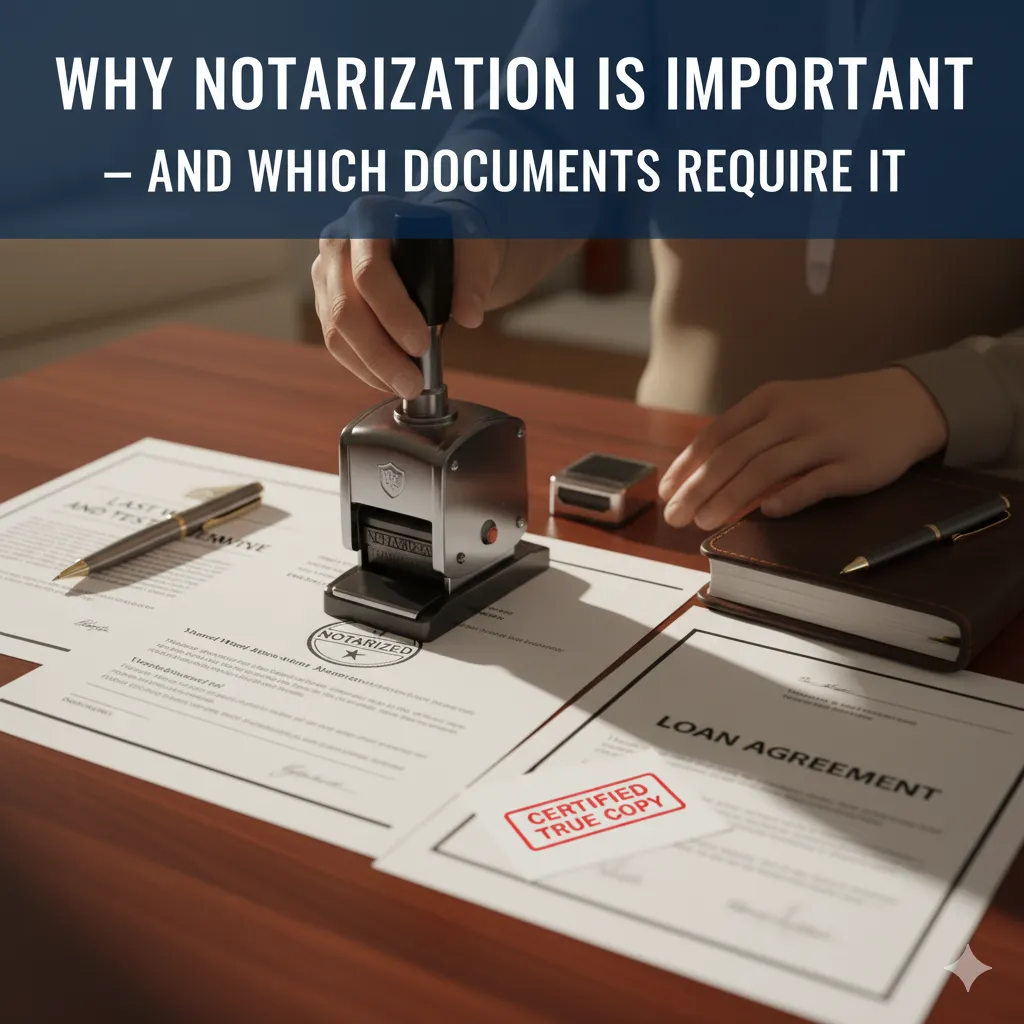Applying for a visa, permanent residency, or citizenship can be one of the most important steps in your life — whether you’re moving abroad for work, study, or family. But immigration procedures are often complex, time-consuming, and full of legal formalities.
A single missing document or small mistake on your application can cause rejection, long delays, or even permanent ineligibility. That’s why having an immigration lawyer by your side can make all the difference.
In this post, we’ll explore how an immigration lawyer simplifies your visa or residency process, helps you avoid costly mistakes, and ensures a smooth, stress-free experience from start to finish.
1. Understanding Immigration Law and Its Complexities
Immigration laws differ from country to country — and they are frequently updated. What worked for someone a year ago may not work today.
Each country’s immigration system includes:
- Dozens of visa categories (work, study, family, investor, etc.)
- Different eligibility requirements for each type
- Strict documentation and timeline rules
- Detailed interview or background verification processes
An immigration lawyer understands these intricate regulations and ensures your application is accurate, complete, and compliant with current legal standards.
In short: They translate legal jargon into clear steps you can follow confidently.
2. Evaluating the Right Visa or Immigration Path for You
Most people start their immigration journey unsure of which visa best fits their purpose or long-term goals. Choosing the wrong one can waste months and thousands of rupees (or dollars).
How a lawyer helps:
- Assesses your personal situation (education, experience, finances, family, etc.)
- Explains all available options — from temporary work permits to permanent residency programs
- Recommends the most suitable visa type based on your eligibility and future plans
- Identifies potential risks or limitations early, such as sponsorship issues or quota restrictions
Example:
If you apply for a tourist visa but intend to study or work later, a lawyer can advise on the correct route and help you switch legally without violating immigration rules.
3. Preparing and Reviewing Your Documentation
One of the biggest reasons visa and residency applications get rejected is incomplete or inaccurate documentation.
An immigration lawyer ensures that:
- All your forms are filled out correctly
- Supporting documents (passports, certificates, letters, etc.) are properly authenticated
- Translations, notarizations, and certifications meet legal requirements
- Every document is submitted in the right format and timeline
Common documents a lawyer reviews:
- Proof of education and employment
- Bank statements and financial records
- Invitation or sponsorship letters
- Police clearance certificates
- Medical and vaccination reports
Why it matters: Even a small mismatch — like a missing signature or outdated certificate — can trigger rejection or months of delay.
4. Communicating with Immigration Authorities
Dealing directly with immigration offices or embassies can be overwhelming. Misunderstandings, unclear instructions, or delayed responses are common.
When you hire a lawyer:
- They communicate officially with immigration authorities on your behalf.
- They respond to inquiries or requests for additional information accurately and promptly.
- They ensure that all correspondence is professional, consistent, and legally appropriate.
This saves you from the confusion of navigating government channels alone and ensures that your file always moves in the right direction.
5. Handling Rejections, Delays, or Appeals
Even strong applications can face rejection due to documentation errors, technical issues, or changing immigration policies.
If your application is refused, a lawyer can:
- Review the rejection letter carefully to identify exact reasons.
- File a review or appeal within the given deadline.
- Provide additional documents or clarifications required by the authorities.
- Represent you during appeal hearings or interviews.
Without legal help, most applicants either miss appeal deadlines or fail to present a strong case — losing their opportunity to reapply.
6. Guiding You Through Interviews and Background Checks
Many visa and residency applications include a personal interview or verification stage. Your answers and documents are scrutinized closely.
A lawyer helps you prepare by:
- Conducting mock interviews to build your confidence.
- Explaining likely questions and how to respond truthfully yet clearly.
- Ensuring that your answers match your documents and application forms.
- Advising you on what to bring and how to present yourself professionally.
If any issues arise during background checks, your lawyer can guide you in resolving them quickly without harming your application status.
7. Ensuring Compliance After Visa Approval
Your lawyer’s role doesn’t end once you get the visa or residency card. Immigration compliance is ongoing — and a small violation can lead to cancellation or deportation.
Post-approval legal support includes:
- Explaining your visa conditions (like work hours, travel limits, or sponsorship requirements)
- Helping you extend or renew your visa on time
- Assisting with change of address, employment, or marital status notifications
- Guiding you on how to apply for permanent residency or citizenship later
Pro Tip: Many clients lose their visa simply because they forgot to renew or didn’t follow residency rules — a lawyer prevents such mistakes.
8. Helping Employers and Sponsors with Compliance
If you are an employer sponsoring foreign workers or a family sponsoring a relative, immigration compliance becomes your responsibility too.
A lawyer assists by:
- Preparing sponsorship and employment contracts that meet immigration laws.
- Filing required employer or sponsor documentation.
- Ensuring your organization follows labour and immigration regulations to avoid penalties.
- Guiding sponsors on financial responsibility and reporting obligations.
This not only protects the applicant but also shields employers or family sponsors from legal consequences.
9. Dealing with Complex or Sensitive Immigration Cases
Some immigration cases are straightforward — others are highly complex.
Examples include:
- Previous visa refusals or overstays
- Criminal records or background issues
- Mixed-status families (where only one member qualifies initially)
- Cases requiring humanitarian or asylum considerations
An experienced immigration lawyer has dealt with such scenarios before and knows the right strategies, documentation, and arguments to secure a positive outcome.
10. Saving Time, Stress, and Money
Many people think hiring a lawyer makes the process more expensive. In reality, a good lawyer helps you save far more in the long run by:
- Preventing rejection and resubmission costs
- Reducing delays caused by missing or incorrect documents
- Avoiding penalties for accidental rule violations
- Managing everything efficiently while you focus on your personal or professional plans
In essence: You’re paying for peace of mind, expertise, and a faster path to approval.
11. What to Look for When Choosing an Immigration Lawyer
Before you hire one, ensure your immigration lawyer has:
✅ Experience with your specific visa type (e.g., work, student, family)
✅ Updated knowledge of the latest immigration rules and policies
✅ Good communication — explains clearly and responds quickly
✅ Transparent fees with no hidden charges
✅ Proven track record of successful applications and appeals
Ask for an initial consultation — a professional lawyer will assess your case honestly and explain your options without pressure.
12. Common Myths About Hiring an Immigration Lawyer






